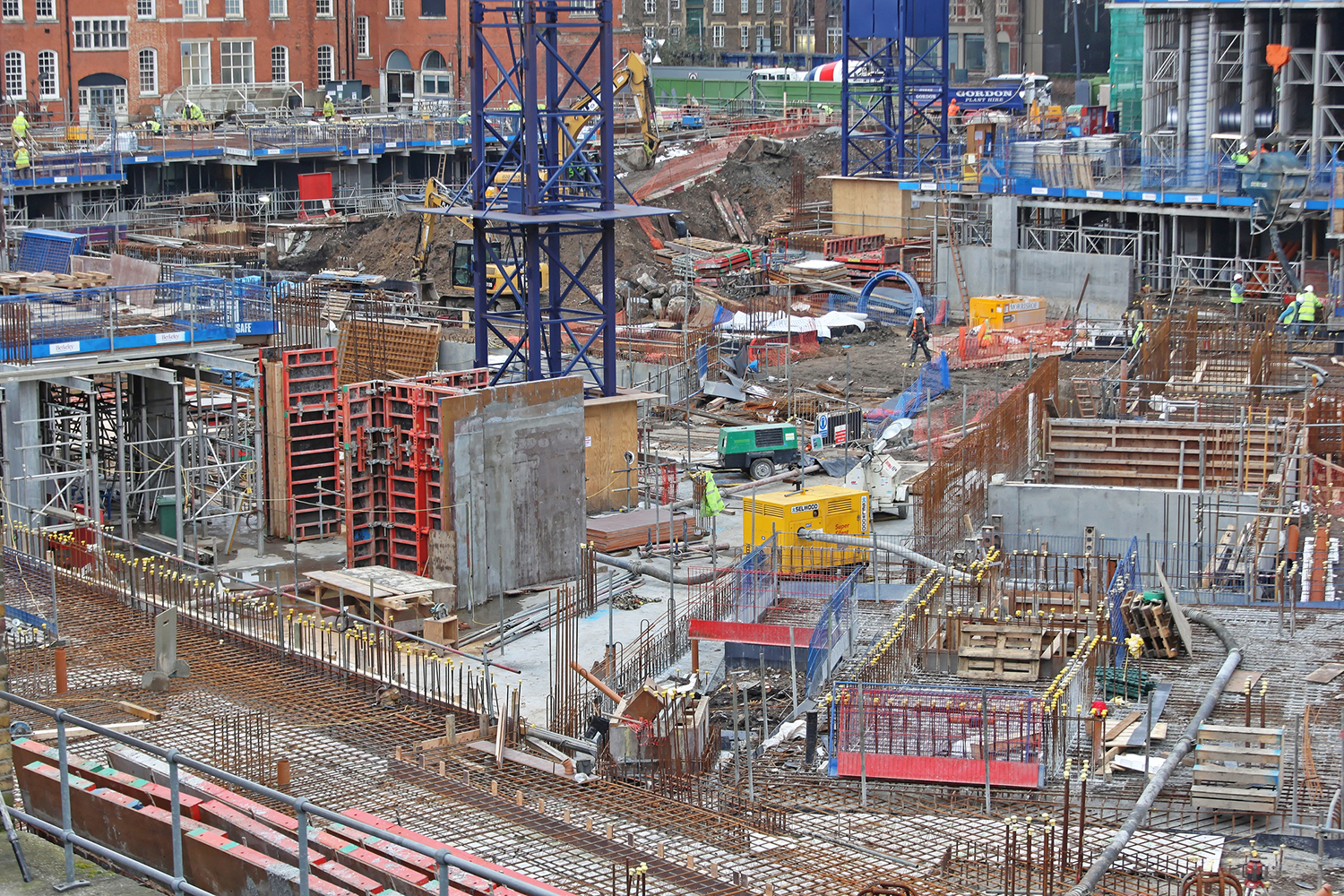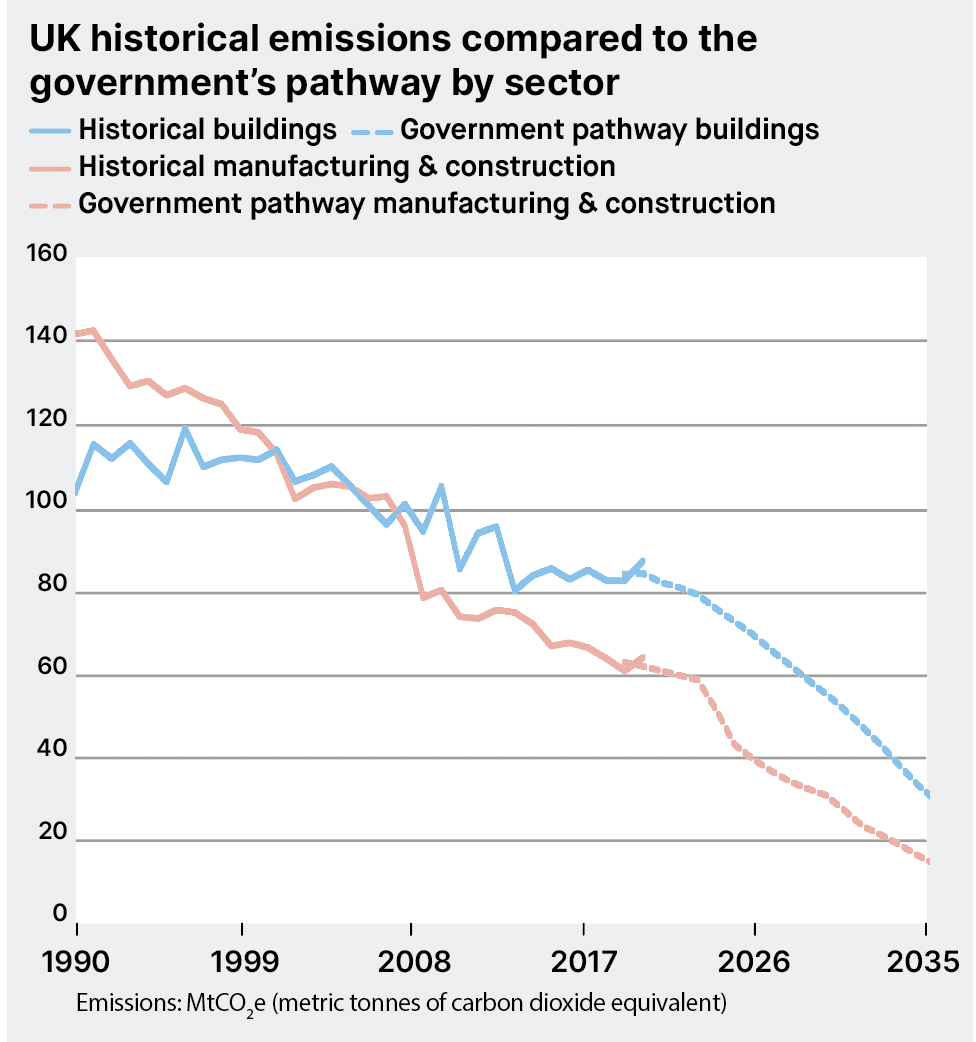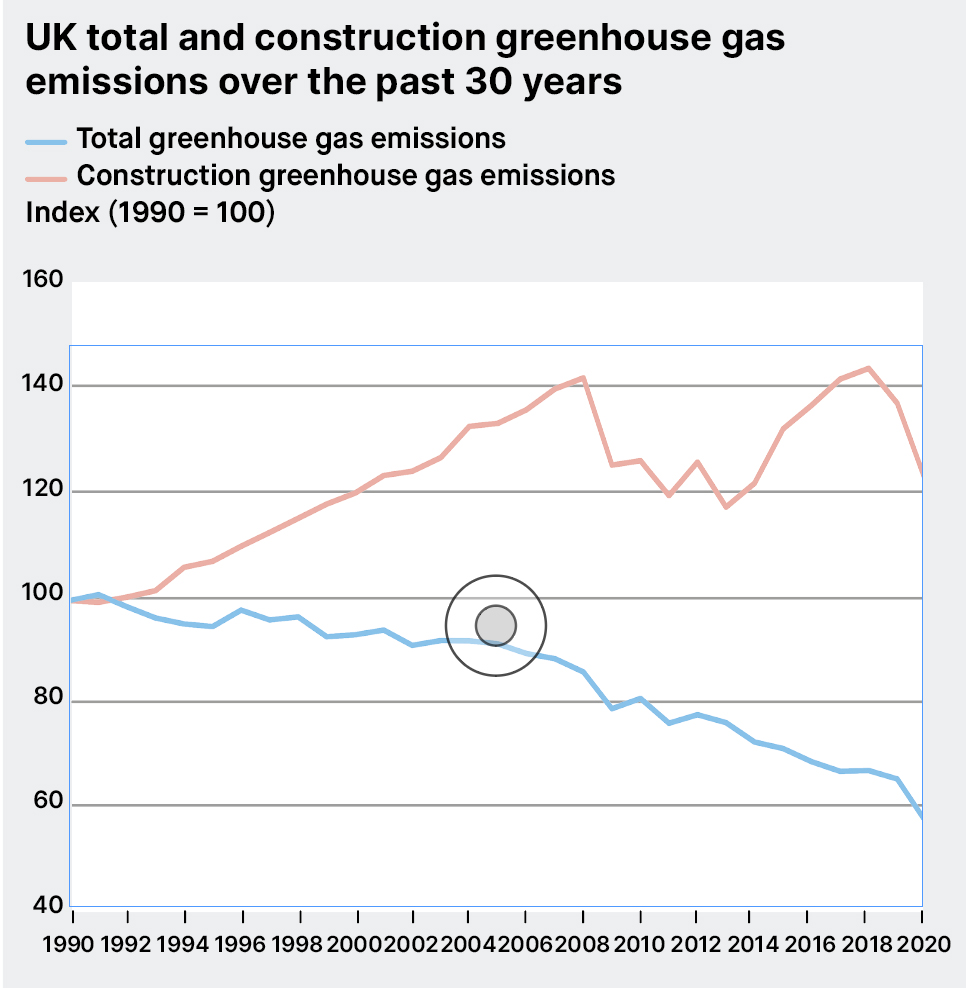
Looming recession may make clients and contractors reassess the business case for sustainability investments. But it’s vital not be thrown off course, argues Kris Hudson.
When it comes to sustainability, the national and the construction industry data paint quite different pictures. Across the whole economy, the UK’s commitments to reducing emissions have been bearing fruit. Greenhouse gas (GHG) emissions have reduced by 42.6% over the last 30 years.
Meanwhile, construction has not performed so well, with an overall increase of 23.3% in GHG over those same three decades. Progress has been made recently, however (see chart).

The increase has particularly been led by specialised construction works, with a 73.3% rise in GHG over that 30-year period. This includes all specialist trades, from energy-intensive pile driving and concrete-heavy groundworks to erecting high-carbon steel structures.
Cost of improvements
Improvements are possible, but not cheap. Specialised construction activities are usually carried out by subcontractors and tier 2 or 3 contractors. These are often SMEs, which are particularly vulnerable to the changing economic climate.
Facing high inflation, high interest rates and a likely recession, both clients and contractors may reassess the business cases behind planned sustainability investments. Premiums associated with procuring and delivering low carbon construction may seem unaffordable luxuries.

But it is vital that the cases for investing in sustainability are strengthened. Short-term economic difficulties should not be allowed to worsen the long-term sustainability crises.
Some of this will be achieved via government intervention – and ambitions are lofty. Government is hoping to reduce annual emissions in buildings by 55.5 tonnes of CO2 by 2037, requiring manufacturing and construction emissions to reduce by 64.4% (see chart).
Increased requirements to reduce carbon
Recently, in June, the Building Regulations increased requirements for new buildings to reduce carbon, including expecting 30% lower emissions from new-build homes. And the £2.9bn Public Sector Decarbonisation Scheme will help sustain interest in retrofitting publicly owned buildings and encourage expansion of the UK’s retrofit market.
But for many clients the incentive must lie in improving investment cases. The industry must drive programme productivity to keep costs in check and show those planning capital projects that they need not choose between improving sustainability and delivering maximum value.
Awareness of the long-term operational savings from net zero and sustainability is growing, so if the upfront investment costs can also be shown to be lean and efficient, green investment will remain appealing despite the economic turbulence.
Kris Hudson is an economist and associate director at Turner & Townsend.











